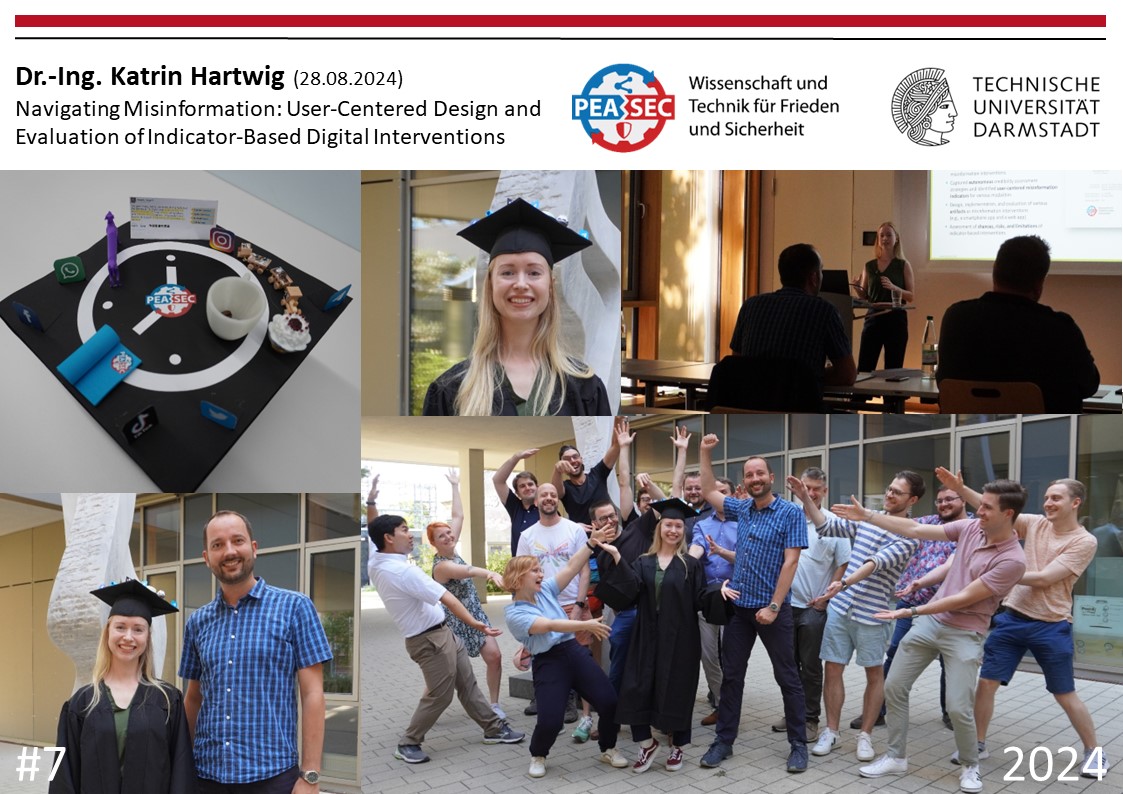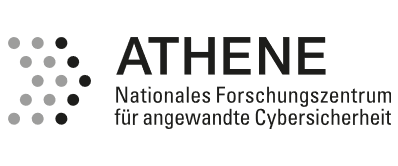Navigating the complex digital information landscape is increasingly challenging due to the overabundance of both reliable and false information, especially on social media. Technologies to help users navigate within this information have the potential to have a positive impact on users’ abilities to handle the situation. Katrin Hartwig’s thesis Navigating Misinformation: User-Centered Design and Evaluation of Indicator-Based Digital Interventions focuses on user-centred digital misinformation interventions, such as smartphone apps and browser plug-ins, to help users manage misinformation in various forms. It employs a human-centred design approach to analyse and categorise existing interventions systematically, as well as to design new interventions and evaluate their effectiveness through user studies. Key findings include the identification of valuable and comprehensible indicators for different content modalities (text, audio, video), designing and testing a simulated TikTok app, and recognising both the potential and limitations of these interventions, such as users’ blind trust in them. The research also offers insights into the transferability of these findings to cybersecurity contexts.
On Wednesday, August 28, 2024, Katrin Hartwig successfully defended her PhD thesis, which marks the final milestone towards achieving her Dr.-Ing. degree at the Department of Computer Science at Technical University of Darmstadt.
The entire PEASEC team extends its heartfelt congratulations to our new *Dr.-Ing.* Katrin Hartwig!

Her dissertation was supervised by Prof. Dr. Dr. Christian Reuter, who also acted as first referee. Prof. Dr. Amanda Lee Hughes (Brigham Young University, USA) served as second referee. Prof. Dr. Justus Thies (3D Graphics & Vision) and Prof. Dr. Martin Steinebach (Media Security and IT Forensics) joined the examination committee.
Navigating Misinformation: User-Centered Design and Evaluation of Indicator-Based Digital Interventions
Informed navigation of the complex digital information realm constitutes a major challenge for society and individuals, which is constantly growing due to the overabundance of reliable and false information. This includes dealing with misinformation on social media, a central source of information procurement and exchange, in everyday life and in times of crisis. Complementing efforts like educational measures in classrooms or critical journalism, the research field of Human-Computer Interaction (HCI) suggests digital misinformation interventions as a user-centered countermeasure.
This dissertation provides (1) a structured understanding of the state-of-the-art of misinformation interventions within a developed taxonomy. This encompasses diverse intervention designs, active and passive user interaction types that do or do not require an engagement of the user with the intervention, and various timings. The dissertation demonstrates that the current research is mostly U.S.-based, addresses higher-educated participants, and particularly targets platforms like Twitter/X and Facebook. There is a lack of research regarding trending platforms that focus particularly on multimodal content and are highly relevant for specific user groups. It further highlights trends toward transparent and comprehensible interventions in contrast to top-down approaches.
The findings informed (2) the design, implementation, and evaluation of a simulated smartphone app for TikTok, an intervention for misleading voice messages, and a web app for Twitter/X content as indicator-based interventions. Therefore, (3) the dissertation identified user-centered misinformation indicators for various modalities that were perceived as useful and comprehensible by adult and adolescent participants in empirical studies. The dissertation empirically demonstrates that (4) indicator-based interventions are positively received overall, particularly due to their transparency in contrast to less comprehensible top-down approaches. However, they also come with severe limitations and challenges, such as users’ blind trust and lack of realistic assessments of potential errors or biases. This research outlines chances, limitations, and implications for future research on misinformation interventions.

Selected Publications within the PhD thesis:
The Landscape of User-centered Misinformation Interventions – A Systematic Literature Review
ACM Computing Surveys (CSUR), 2024. doi:10.1145/3674724
[Download PDF]
Misleading Information in Crises: Exploring Content-specific Indicators on Twitter from a User Perspective
Behaviour & Information Technology (BIT), 2024. doi:10.1080/0144929X.2024.2373166
[Download PDF]
Digital Resilience in Dealing with Misinformation on Social Media during COVID-19
Information Systems Frontiers, 2024. doi:10.1007/s10796-022-10347-5
[Download PDF]
Navigating Misinformation in Voice Messages: Identification of User-Centered Features for Digital Interventions
Risk, Hazards & Crisis in Public Policy, 2024. doi:10.1002/rhc3.12296
[Download PDF]
From Adolescents’ Eyes: Assessing an Indicator-Based Intervention to Combat Misinformation on TikTok
Proceedings of the CHI Conference on Human Factors in Computing Systems (CHI), 2024. doi:10.1145/3613904.3642264
[Download PDF]
Mitigating Misinformation Sharing on Social Media through Personalized Nudging
Proceedings of the ACM Human-Computer Interaction (PACM): Computer-Supported Cooperative Work and Social Computing (CSCW), 2024.
[Submitted after Major Revisions]
Nudge or Restraint: How Do People Assess Nudging in Cybersecurity – A Representative Study in Germany
Proceedings of the 2021 European Symposium on Usable Security (EuroUSEC), 2021. doi:10.1145/3481357.3481514
[Download PDF]
Finding Secret Treasure? Improving Memorized Secrets Through Gamification
Proceedings of the 2021 European Symposium on Usable Security (EuroUSEC), 2021. doi:10.1145/3481357.3481509
[Download PDF]




